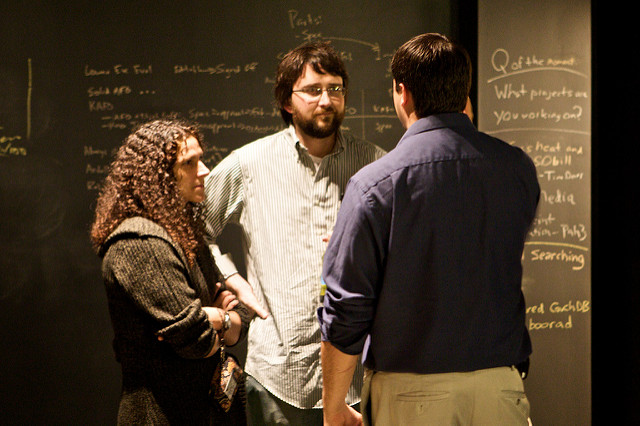Top 10 Mistakes Entrepreneurs Make – I bumped into the video after of end of this post today, normally I don’t like watching videos like this that are over an hour so I almost skipped it but then I said, “hey it’s Kawasaki how can you possibly skip him”? I got interested after he explained the first mistake because I was guilty of it.
It was helpful, informative and inspiring, it related to me because I had made some of these mistakes.
The comic examples he used in almost all the points is a plus, you won’t have a dull moment watching it.

Guy kawasaki is an author, speaker, former chief evangelist of apple, a venture capitalist and was also an advisor to the Motorola business unit of Google.
So here are the top 10 mistakes entrepreneurs make
One percent
How hard can it be to get X number of users? I asked this question when i started a business with one of my friend earlier this year.
Before this business, I would have gone any length to prove that it’s very possible to get a little fraction of customers out of a large market.
I realize now that it’s not as easy as it might seem, it’s difficult!
What I did was take a large number say – 4 million iPhone users, then assume we were targeting users between ages 17-28 which might result in about 2.5 million users.
Assuming the users pay $1/month for subscription, now the question is how hard can it be to get 100k users out of the 2.5 million and make $1.2m in our first year?
Well the sad news is that it is hard and I have experienced this first hand.
Scaling too soon
In as much as it’s good to get to market early or get as much users or consumers as possible, Guy says he prefers the exact opposite.
I have known about this before but the way he explained it made me understand why it’s not good to scale so fast.
Entrepreneurs want to always get rock star employees, the best sales people, the nerdiest of all python developers, the list goes on.
They want that big office space, they just want to go out and do everything.
You need to understand the market, you need user feedback and all these take time to hit that sweet spot where it’s now OK to start scaling.
Obsession with partnering
Partnering is bullshit.
He advises that if you want to stop pressure from investors all you need is to meet up your sales.
if you give a timeline to deliver, then by all means deliver.
That is all a VC expects from you, nothing else.
Power point pitch
Entrepreneurs waste time in trying to make the perfect PowerPoint slide and the best pitch.
He prefers a prototype over a perfect slide or pitch any day.
It’s easy to build any software or prototype now, almost everything you need is either free or cheap.
Getting your software up and running does not need as much money as before, because you don’t need to think of getting servers built from the ground up when you have amazon web services.
You can even hack into your college network if you think amazon is still too expensive for you.
The key point here is getting a working prototype and not a perfect pitch.
Too many slides, too much time – the 10/20/30 rule
The maximum number of slides for any presentation is 10, 20 minutes and the font size should be 30pts.
An easy way of getting the average font size to use is approximating the age of the oldest VC you are pitching to and divide his age by 2.
So for example, you are pitching a 50-year-old VC, the approximate font size should be 25.
He also highlighted that you don’t need to make your pitch too long to give your point.
In the Q & A session, the second person that asked a question took too much time trying to explain his question, Guy immediately pointed out that he just proved all he has tried to explain about the mistakes entrepreneurs make and he encouraged him that he needs to follow the 10/20/30 rule.
10 slides, 20 minutes, 30pts font.
Doing things Serially
The serial world in entrepreneurship does not exist.
Entrepreneurs usually take a serial process like write a software, then raise money, recruit, sell.
You have to raise money, sell, recruit, write software all at the same time, this is a parallel process and that’s how it’s supposed to be done.
Believing 51% = Control
Nothing ever comes down to a vote in a board meeting.
Entrepreneurs believe if they hold at least this much percentage of the company, they own total control.
Guy claims this is an illusion of control and he believes that as soon as you have an investor’s money in your company, no matter how small, you have lost control.
Believing patents = Defensibility
We have filed patents.
That’s all you are supposed to say in a pitch, you shouldn’t use the patent word more than once! You can file patents, but don’t think it makes you defensible.
Patents take long time to get filed, and if a bigger company infringes on your patent, it’s not a fund-able business and most times you might never win the law suit.
Hiring in your own image
Hire people to complement your skills.
An engineer should hire a sales person, a sales person should hire an engineering person.
What a startup needs is three kinds of people: people to make it, sell it and collect it.
Befriending your VCs
VCs and Investors are not your friends, they are in the business of making money and not making friends.
He stressed that you shouldn’t make friends with them, instead all you need to do is meet your projections or sales.
if you give them a date that a model will be ready, try as much as possible to stick to it.
You need to under-promise and over-deliver.
Thinking a VC can add value
All you need from a VC is money.
Entrepreneurs think being backed by VCs would help you in almost everything.
They might help you in a recruitment, they might give an advice here or there but at the end they always expect you to deliver and make them get their money back.
Yes you guessed right, it’s 11 reasons! Well that’s because Kawasaki loves to do more than you expect which I think is also his spin on the idea of entrepreneurs to always under-promise and over-deliver.
Have you made any mistake before? Let us know in the comment section.
[youtube https://youtu.be/HHjgK6p4nrw?rel=0]


